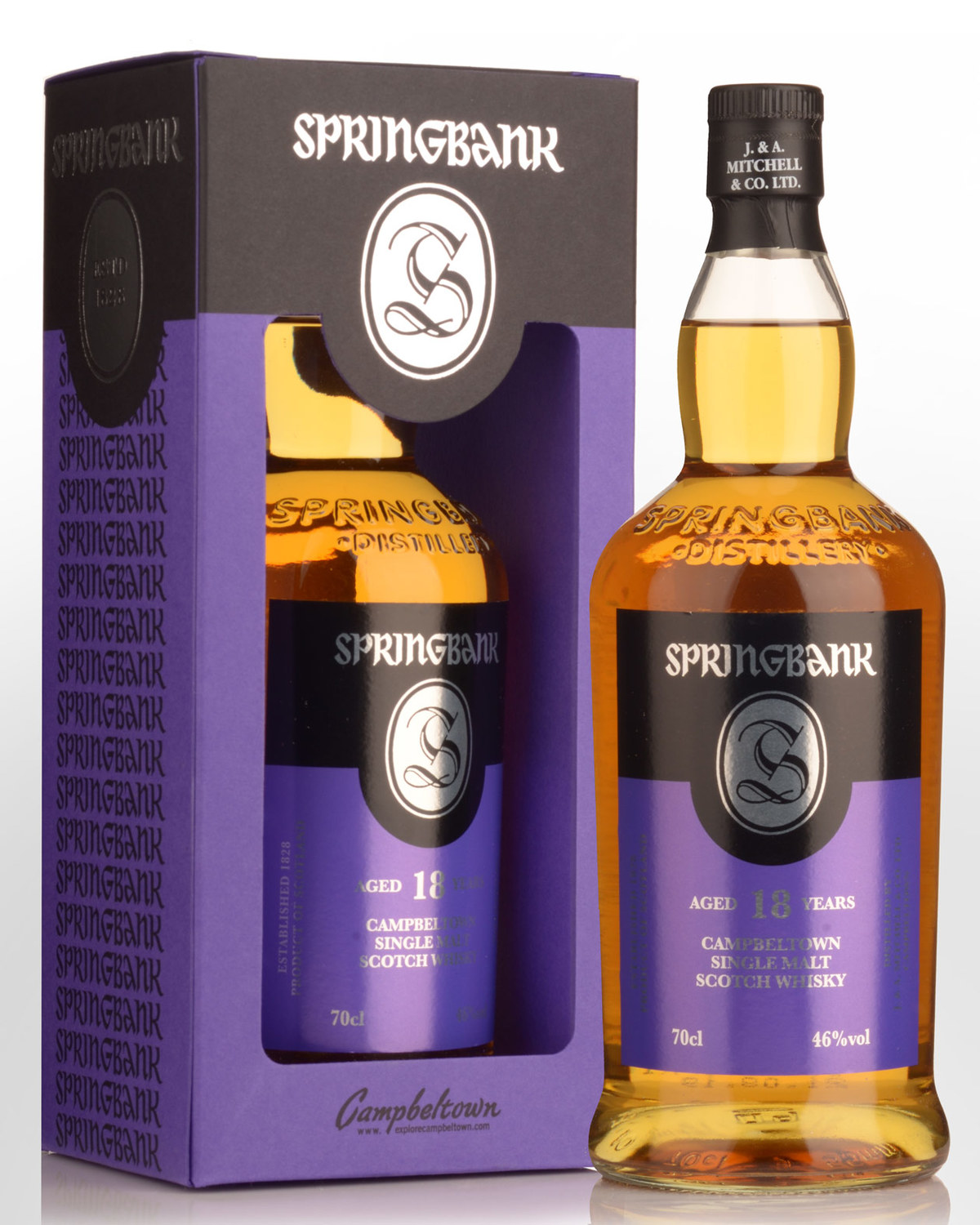
Springbank 18 Year Old Single Malt Scotch Whisky (700ml) - 2019 bottling
The 2019 release is reported to be approximately 80% bourbon oak / 20% port oak matured. These are the last available stocks in Australia, sourced from the official importer. Great review from whiskyfun.com below.
Other reviews... I’m told this batch is composed of 88% bourbon and 12% ex-port wood. Colour: bright straw. Nose: quite elegant at first, wet rocks, sheep wool, carbon paper, sunflower oil. Also this familiar, gentle medicinal profile which includes crushed aspirin, gauze, bandages and rather subtle embrocations. I’d also add that it’s nicely mineral and fresh. Mouth: a little more grizzly than the nose suggested, some rather farmyard qualities and then it swings back towards honey, heather beer, miso, ink, waxes and mineral oil. Extremely easy and I would say pretty well balanced. Lots of medicine again, more cooking oils - olive oil now - gentle notes of seawater, herbal ointments, putty and hessian. Finish: medium and with a lot of medical, mineral and coastal flavours in the aftertaste. Comments: Perhaps not as thrilling as previous batches but this is still devastatingly confident whisky. And I love that it really feels like ‘pure Springbank’. Blind I wouldn’t have spotted any port lurking within. I think something the good folk at Springbank don’t get enough credit for is their skill at putting these kinds of batches together and balancing these different wood types. 90 points - whiskyfun.com
Campbeltown is one of Scotland's four recognised whisky-producing regions, and is situated on the mull of Kintyre some 240 km from Glasgow, south of Islay. Due to the exposed, coastal location of the town, Campbeltown whiskies have their own distinct character defined particularly by an oily, briny quality.
For most of the 17th and 18th century, Campbeltown was a prominent smuggling centre. Following the Excise Act of 1823 taxes were reduced to such an extent that legal distilling at last became competitive against smuggling. This really was the beginning of the golden years for Campbeltown distillers, who hastily began applying for licences. Campbeltown saw a total of 34 distilleries established during the boom of the 19th century and subsequently became known as "Whisky Capital of the World."
However, the levels of production were so high that it was inevitable the bubble would burst. The early part of the 20th century saw changes which had a detrimental effect on the Campbeltown whisky trade. Overconfident in their Glasgow monopoly, some Campbeltown distillers became complacent, putting the emphasis on quantity, not quality, which led to the production of inferior spirit. This, coupled with post-war economic depression and prohibition in the United States took its toll and by 1930 only three distilleries survived. Rieclachan closed in 1934, leaving only Springbank and Glen Scotia as it remains to this day. Springbank Distillery was officially established in 1828 on the previous illicit site of Archibald Mitchell, great-great grandfather of the present Chairman, Mr. Hedley Wright.
